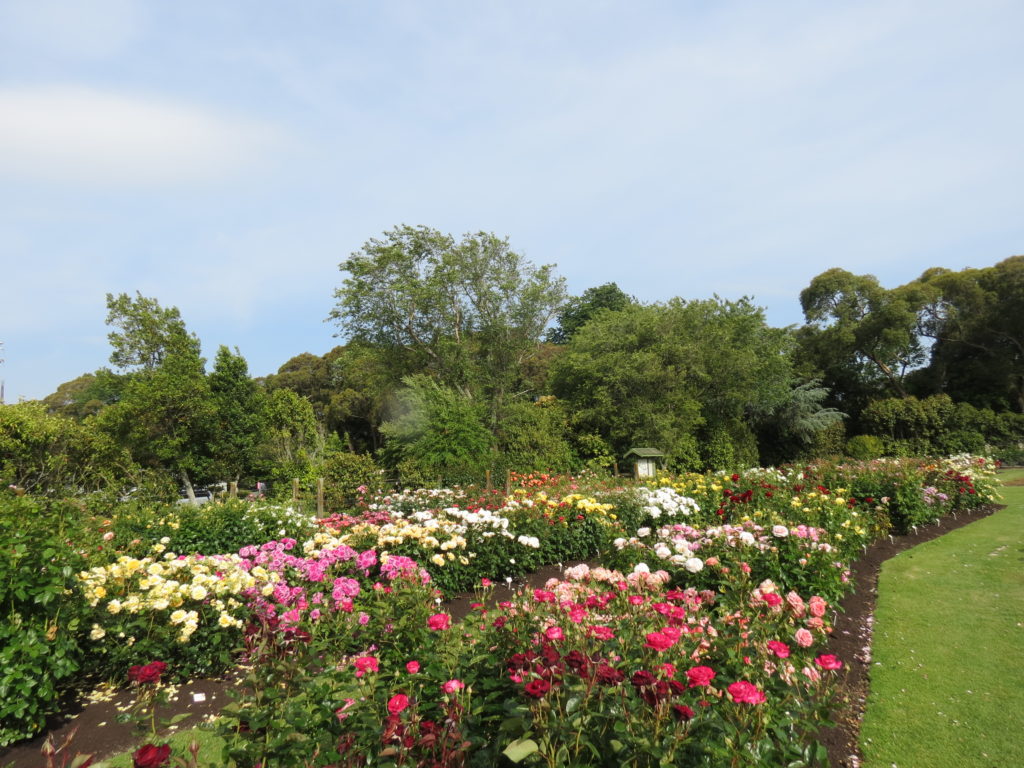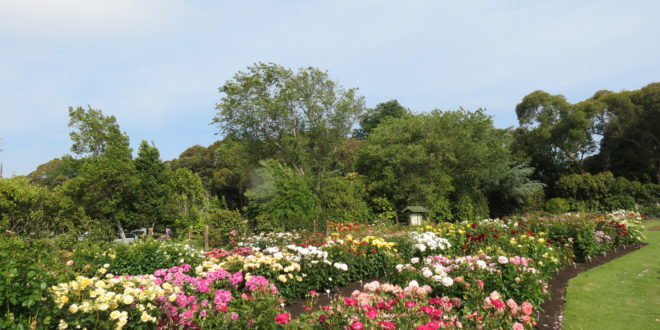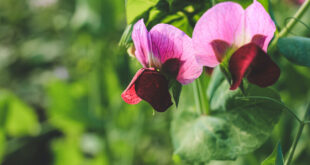2020 sees an important milestone with the International Rose Trials in Palmerston North celebrating their 50th anniversary. A number of my columns this year will look back at past winners of the trials but first, I will cover a bit about the trials and how they operate.

The New Zealand International Trial Grounds were established as a partnership between the New Zealand Rose Society and the Palmerston North City Council. Prior to then, there had been some trialling of roses done at various sites around New Zealand but all had ceased well beforehand, among these were rose trials at Massey University which were a forerunner to the International Trials.
Palmerston North was considered to be a good location to hold such trials as it is centrally located, has an average climate for growing roses and has strong support from the City Council and the local Manawatu Rose Society
Located at the Northern end of the Dugald Mackenzie Rose Gardens in the Victoria Esplanade Gardens, the trials aim to test un-released cultivars from New Zealand and overseas breeders under standard conditions with the view to their possible commercial release.
Each trial consists of 40 – 50 entries from both New Zealand breeders and overseas breeders via New Zealand agents. Each entry is identified as a code number throughout the trial. Conducted over a two year period, the number of plants per entry varies according to type. Six plants are needed for HT and Fl, three for shrubs and groundcovers, four for miniature/patios and two for climbers/patio climbers. Entering roses into the trial is free. After each trial is finished, the winners are replanted elsewhere in the rose gardens while remaining plants are returned to the entrants or destroyed.
A panel of judges visit each trial over the growing season from November to April to assess the roses under different criteria using a simple 1 – 10 scoring system.
In the first year of a trial, each entry is judged four times in spring, summer and autumn. Categories judged are Plant Quality, Freedom of Flowering, Flower Quality and Fragrance. The second years judging is far more rigorous with five judging’s with more categories: plant habit/growth, health, freedom of flowering, flower form and flower quality A separate judges for novelty among the entries
The winning roses from each trial are announced at a function held in Palmerston North in late November/early December each year. An entry must reach an average of 70% across all judging categories and must be released commercially in New Zealand to receive an award
Certificates of Merit are presented to those entries that gain a 70% average with special awards, the Nola Simpson Award for novelty and the June Hocking Award for fragrance presented if high marks have been given in those two areas. The awards are named for two local rose society members who each gave over 30 years’ service to the rose trials. Past winners of the Fragrance award include ‘Westerland’, ‘Aotearoa’, ‘Sheila’s Perfume’ and ‘Taffeta’. Those roses recognised for their novelty value include ‘Warm Welcome’, ‘Scentimental’, ‘Fourth of July’ and ‘Starry Eyed’.
To recognise the efforts of New Zealand amateur breeders, the Silver Star of the City of Palmerston North is awarded to the best NZ amateur bred rose gaining a Certificate of Merit. Some fine winners of the Silver Star including ‘Millennium’, ‘Blackberry Nip’ and ‘Chocolate Prince’.
The trial grounds top award, the Gold Star of the South Pacific, is awarded to the highest pointed rose on trial gaining a Certificate of Merit. This is a highly sought after award, particularly by New Zealand rose breeders, and often leads to the rose becoming a top seller commercially. Such roses have included ‘Friesia’, ‘Trumpeter’, ‘Margaret Merrill’, ‘Gold Medal’, ‘Sexy Rexy’, ‘Hot Chocolate’, ‘Elina’, ‘Anniversary’, ‘Pacific Glory’, ‘Absolutely Fabulous’ and ‘Red Flame’
The 50th anniversary celebrations are being held on November 28th and 29th in Palmerston North with the hosting of the National Rose Show, the launch of a book about the history of the trials and the first release of ‘Pride of Palmy, a stunning new rose that has been named for Palmerston North by Rob Somerfield.
You can find out more about the rose trials including a list of past winners by visiting the New Zealand Rose Society website and look under the events tab.
In the Rose Garden for February
- Water your roses when dry.
- Start to prepare areas for plantings in winter by digging over and adding compost.
- Order rose plants for winter delivery especially any new and popular varieties as they can sell out quickly. Also, any varieties you want as a standard as these can be popular as well.
- If you are into budding onto rootstock, February is a good month to do it.
By Hayden Foulds
Hayden also serves as Deputy Chairman of the World Federation of Rose Societies Rose Trials Committee amongst other rose endeavours.









Join the Discussion
Type out your comment here:
You must be logged in to post a comment.